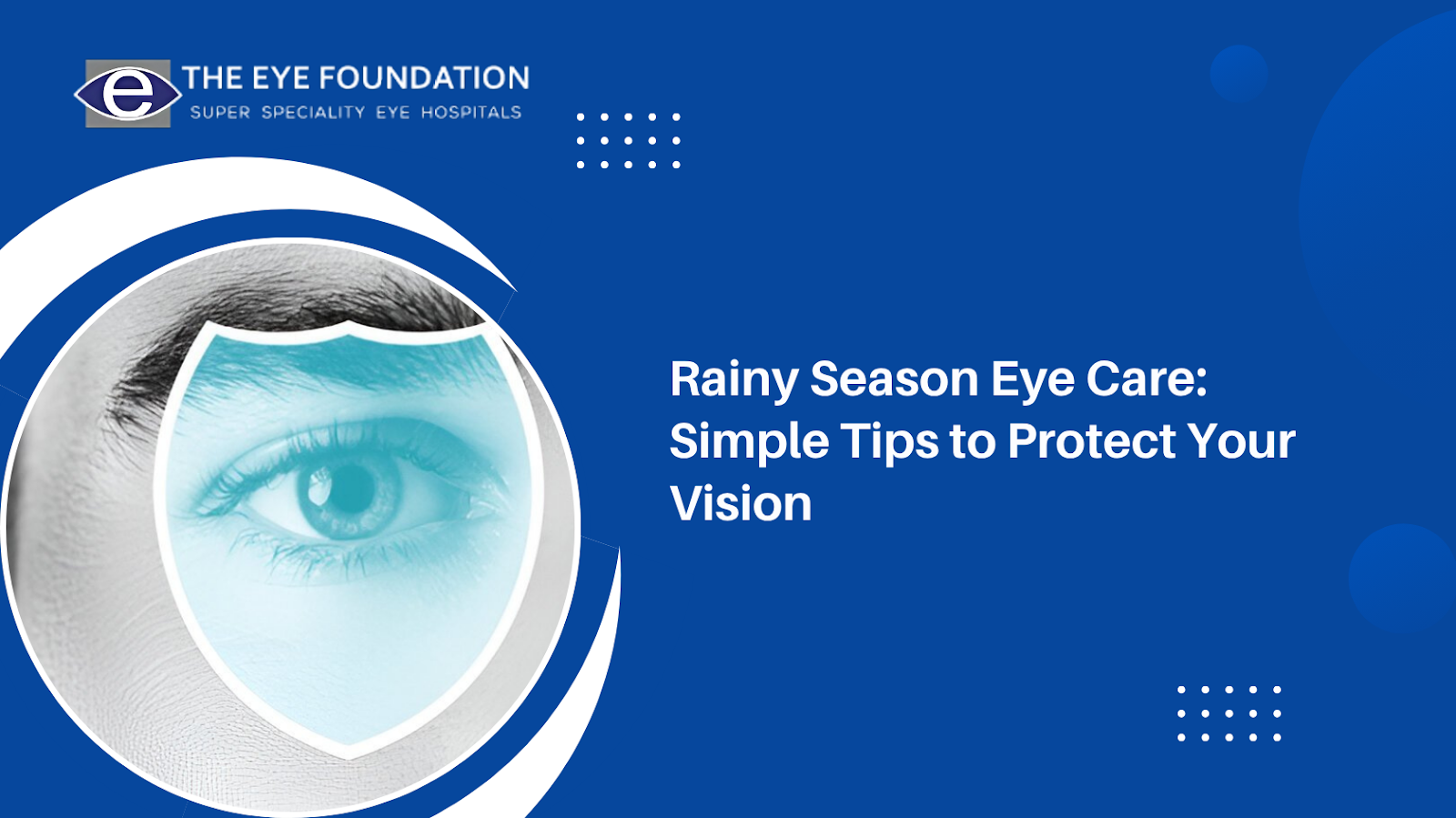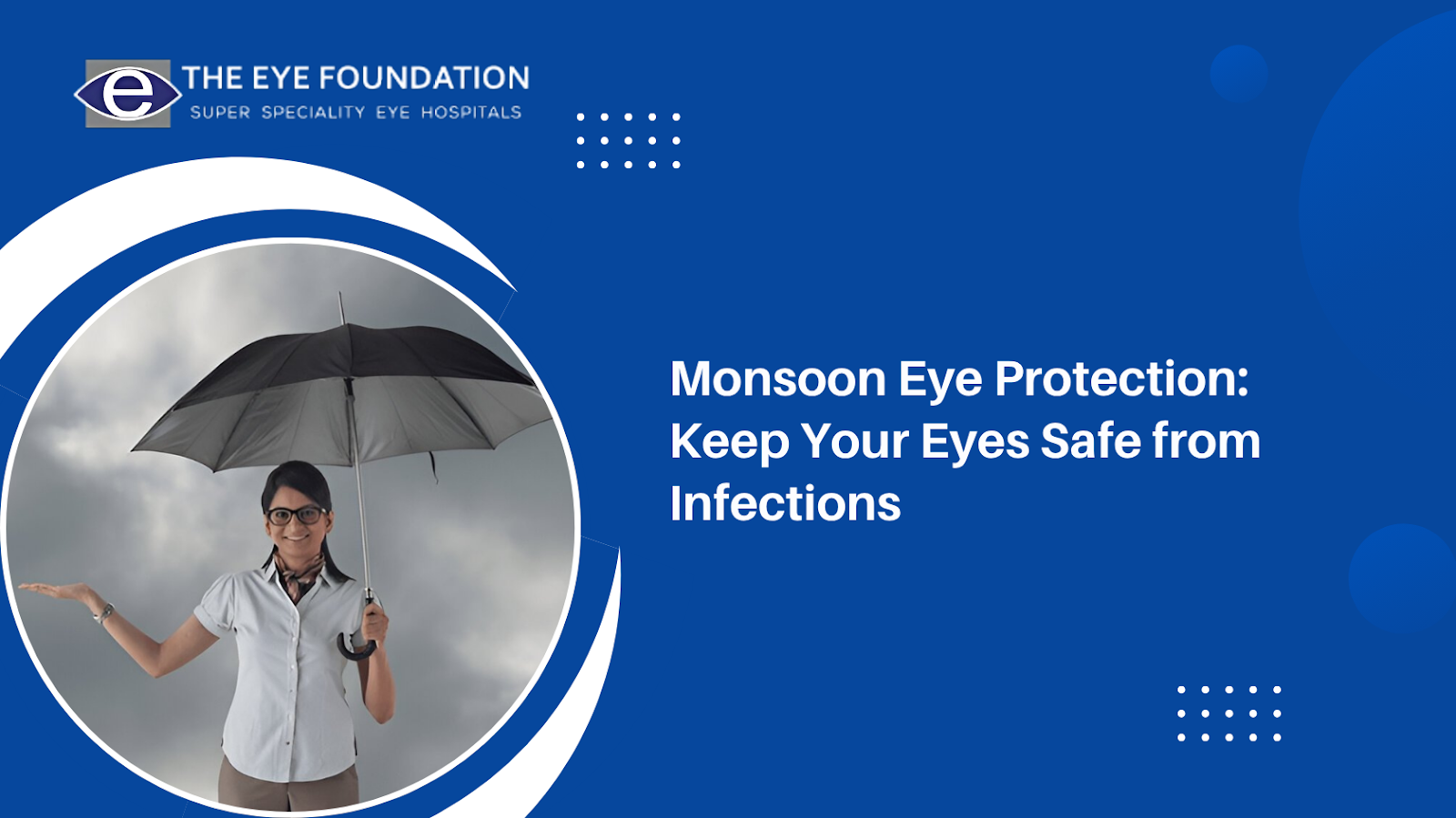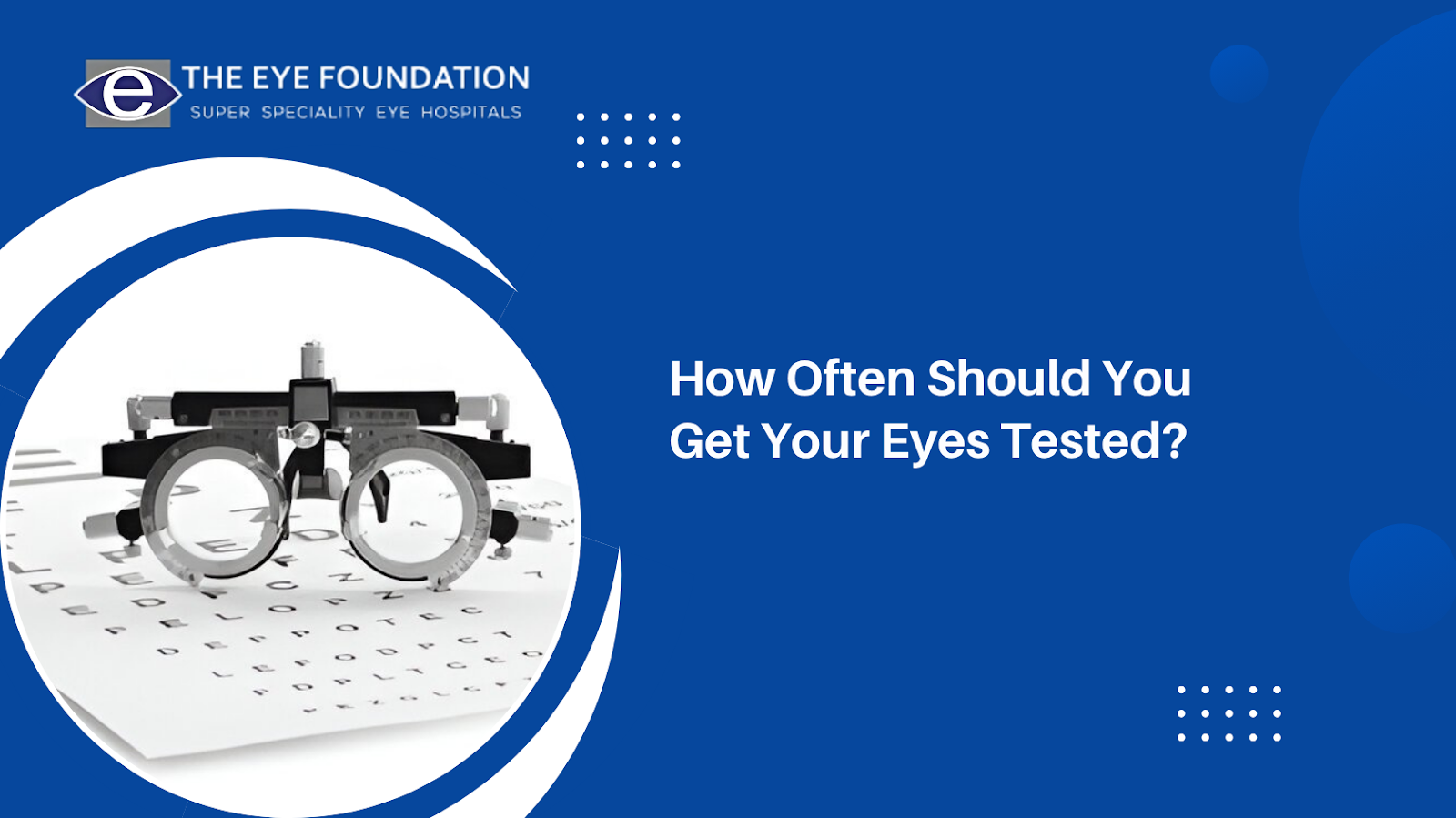When the overhead skies darken, and the initial droplets of rain fall onto the ground, it feels fresh and revitalising. Although the rainy season brings welcome relief from the summer heat and humidity, it also poses increased risks of infections, particularly to your eyes. From the humidity, to dust, to bacterial growth, this season can wreak havoc on your eye system if you are not mindful of it.
Let's discuss simple, straightforward things to remember for rain eye care, so that your vision can remain healthy and clear throughout the monsoon season.
Why Eye Care is Important in the Rainy Season
The monsoon brings moisture to the atmosphere - a primary reason bacteria and viruses thrive. Water that becomes contaminated, water that consistently falls from the sky, existing humidity in the atmosphere, and allergens in the air can all contribute to increased chances of infections that can occur with:
1) Conjunctivitis (Pink Eye)
Conjunctivitis (Pink Eye) is highly contagious, and can easily find its way from the hands of a friend or by sharing a towel, handkerchief, or cosmetics.
2) Stye (Eyelid infection)
Styes often occur from bacteria infecting the oil glands that are located along the eyelid margin.
3) Corneal Ulcers
Corneal ulcers can occur when minor infections or injuries are not monitored/taken care of during this humid season.
4) Allergic Eye Conditions
Mold spores, dust mites, and pollen can float on the humidity in the air; for individuals that are sensitive, this translates to pain and discomfort to the eyes.
A few preventative measures are the best approach - not only for the moment, but for the sake of your overall vision.
Keep Your Hands Clean and Away from Your Eyes
You might think this sounds simple, but it is also the most powerful eye care habit during the rainy season - hands (without knowing) are on many contaminated surfaces, the door knob, cell phone, on the handle of an umbrella, then they can find your face or your eye and now you have transferred bacteria directly to your delicate eye tissues.Recommended Practice:
- Wash your hands well with soap before touching eyes, or face.
- Always carry a pocket size sanitizer when outdoors.
- Do not rub your eyes, even if they are itchy or watering.
- Avoid Getting Rainwater in Your Eyes
Rainwater is impure; it carries pollutants, dust, and microorganisms from the atmosphere. Irritation, even infection, can occur when it gets in the eyes .
Eye care action points:
- Avoid walking or riding in a heavy rain without protection.
- Use an umbrella or raincoat hood to protect your face.
- If rainwater happens to get in the eyes, gently rinse with clean, filtered water.
Wear Protective Eyewear When Outdoors-
Strong wind and splashes in the rainy season can bring dirt and microorganisms directly into your eyes. Protective eyewear, such as sunglasses or clear glasses, can provide a physical barrier to rain and wind. In addition:
- It protects against all harmful UV rays, even when it's cloudy!
- Protects against glare while driving in rain for better vision.
- It acts as a shield from airborne irritants and infections.
Keep up Good Contact Lens Hygiene
Contact lens wearers need extra care during the monsoon. Rainwater or unclean hands can easily contaminate contact lenses and lead to infections of the eyes.
Do the following practice:
- Don't ever touch your contacts without washing your hands.
- Only use doctor prescribed lens solution for cleaning and storage.
- Refrain from using contact lenses during rain or swimming.
Should your eyes exhibit signs of discomfort, you should consider using glasses until you can see an eye doctor.
Keep Your Environment Dry and Clean
A humid environment naturally occurs in the rainy season, encouraging the growth of mold and fungus around damp corners and air conditioning vents; in turn, this will cause allergic reactions to the eyes. So, eye-positive home care is:
- Keep your living environment completely dry and well-ventilated.
- Regularly clean fans, air filters, and curtains.
- Avoid sleeping under damp ceilings or near walls prone to moisture.
- Fuel Your Eyes to Strengthen with Nutritious Eating
A nutritious food plan provides your eyes stronger vision and better defense against infections. During rainy weather, put focus on foods that are high in antioxidants and vitamins A, C, and E.
Take in:
- Carrots, spinach, and sweet potatoes (Vitamin A)
- Citrus fruits, guavas, and bell peppers (Vitamin C)
- Almonds, sunflower seeds, and avocados (Vitamin E)
- Green tea and turmeric (natural anti-inflammatory).
- Drink a lot of clean, boiled or filtered water. Dehydration is one of the causes of dry and tired eyes.
- Rest Your Eyes and Limit Screen Time
Often, rainy days mean staying inside and reaching for the laptops, mobiles, or TV, in turn increasing your screen exposure. When using screens for long durations, you can have digital eye strain, dry eyes, and even headaches.
The 20-20-20 rule:
Every twenty minutes, you should look at something at least 20 feet away for at least 20 seconds.
- This habit will relax eye muscles and minimize fatigued eyes.
- Plan a Routine Eye Exam
This rainy season, you should visit your eye specialist immediately if you have any of these signs:
- Redness or itching that lasts longer than 24 hours
- Discharge or sticky eyelids,
- Blurred vision or sensitive to light
- Eye swelling or pain
This will allow you to get an early diagnosis to recover quickly and prevent future problems. A routine eye examination can pick up silent eye diseases before they become worse.
Keep Your Vision Bright this Rainy Season
The rainy season brings smiles and freshness in its own way, but the rainy season will also bring helmets for your eyes. Just a few precautions will help keep your vision safe, healthy, and free from infection.
At The Eye Foundation, our expert ophthalmologists practice comprehensive eye care, from the management of infection to more advanced services like vision correction.
If you have been dealing with irritation, redness, or blurry vision, do not wait for eye care! Schedule your appointment today to protect your vision this rainy season.





